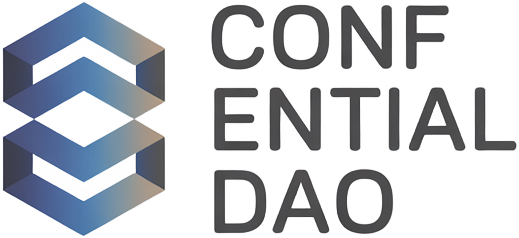
In the rapidly evolving landscape of decentralized governance, privacy is emerging as a non-negotiable requirement. As DAOs (Decentralized Autonomous Organizations) mature, their communities increasingly demand voting systems and data management practices that protect individual confidentiality without sacrificing transparency or verifiability. Fully Homomorphic Encryption (FHE) has become a cornerstone technology for privacy-first DAO governance, enabling computations on encrypted data while keeping sensitive information shielded from public view.

Why Privacy Matters in Decentralized Governance
DAOs have democratized decision-making by allowing token holders to propose, debate, and vote on all manner of protocol changes and treasury allocations. However, most on-chain voting mechanisms expose individual votes and proposal outcomes in real time. This visibility can lead to voter coercion, collusion, and even targeted attacks against dissenting voices. As highlighted by multiple privacy advocates, private voting not only prevents corruption but also encourages more honest participation, unlocking the full potential of decentralized governance.
The push for confidential voting is no longer theoretical. Projects like Shutter Network are deploying permanent shielded voting on platforms such as Snapshot using threshold-homomorphic encryption schemes and zero-knowledge proofs. These innovations ensure that ballots remain private while still allowing transparent tallying of results, a critical balance between privacy and accountability.
The Mechanics of Fully Homomorphic Encryption in DAOs
FHE enables computation directly on encrypted data, a capability with profound implications for blockchain-based organizations. In practical terms, this means that DAOs can process votes or execute smart contracts without ever exposing the underlying data to validators or third parties. For example:
- Encrypted Voting: Each member’s vote is encrypted before submission. The network tallies votes using homomorphic operations, revealing only the final result, not individual choices.
- Confidential Smart Contracts: Sensitive business logic or member data can be processed within smart contracts built atop FHE frameworks such as Zama’s fhEVM, ensuring end-to-end confidentiality even during execution.
- Secure Data Management: DAOs handling proprietary financials or personal information (e. g. , in healthcare or genomics) can perform analytics on encrypted datasets without ever decrypting them on-chain.
This approach not only safeguards voter anonymity but also provides robust protection against front-running and other forms of manipulation endemic to open blockchains.
Real-World Deployments: From Theory to Practice
The adoption curve for FHE in blockchain governance is steep but accelerating. Platforms like Zama are pioneering developer tools that allow Solidity smart contracts to accept encrypted inputs, radically expanding what’s possible for confidential DAO operations. Meanwhile, Shutter Network’s linear threshold-homomorphic encryption model is being tested in live DAO environments, offering a working proof-of-concept for permanent shielded voting.
This shift isn’t limited to theoretical models or isolated pilots; it represents a broader movement towards privacy-preserving infrastructure across the decentralized ecosystem. As more DAOs recognize the strategic value of confidential participation, especially in sectors like finance and healthcare, the demand for scalable FHE solutions will only intensify.
Yet, despite the promise of fully homomorphic encryption in DAOs, practical deployment requires navigating several technical and operational hurdles. The most prominent challenge is computational overhead. Traditional blockchains are not designed for the heavy processing requirements of FHE, which can lead to higher latency and increased costs per transaction. For DAOs managing large-scale votes or complex confidential smart contracts, this means that careful trade-offs must be made between privacy guarantees and system performance.
Recent advances, however, are rapidly closing this gap. The emergence of specialized FHE coprocessors and optimized cryptographic libraries is making it feasible to run encrypted computations at speeds compatible with real-world governance workflows. As highlighted by OpenZeppelin and Oasis Protocol, these technical breakthroughs are crucial for moving FHE-powered confidential voting from experimental stages to production-ready infrastructure.
Unlocking New DAO Use Cases With Confidentiality
The ability to compute on encrypted data opens up a spectrum of new possibilities for DAOs far beyond private voting. Consider the implications for treasury management: with FHE, financial proposals and allocations can be deliberated and executed without revealing sensitive payment details or strategic reserves until consensus is reached. This not only protects the organization from external threats but also preserves internal bargaining power during negotiations.
Other emerging applications include member credential verification, where DAOs can confirm eligibility or reputation scores without exposing underlying identities or personal data. In regulated industries such as healthcare or finance, confidential governance architectures powered by FHE allow compliance with stringent privacy laws while maintaining decentralized decision-making, a critical enabler for mainstream adoption.
Future Outlook: Privacy as a DAO Standard
The trajectory is clear: as cryptographic techniques like fully homomorphic encryption mature, privacy-first DAO governance will become not only possible but expected. We are already witnessing a shift in community sentiment, DAO members increasingly view shielded participation as essential to both their safety and their willingness to engage meaningfully in protocol decisions.
For those building or participating in next-generation DAOs, now is the time to explore how confidential voting and encrypted proposal workflows can be integrated into your governance stack. Resources such as this guide on confidential DAO voting and architectural deep dives on privacy-preserving infrastructures provide actionable starting points.
If your organization handles sensitive data or faces regulatory scrutiny, adopting FHE-based solutions may soon move from an innovation advantage to a baseline requirement. The future of decentralized governance will be defined by its ability to foster trust through confidentiality, without sacrificing transparency or accountability.






